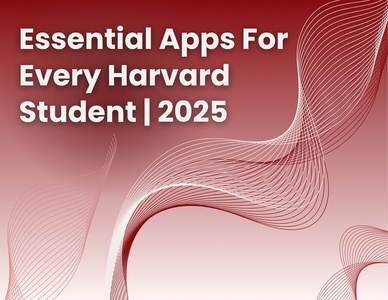
News
In Fight Against Trump, Harvard Goes From Media Lockdown to the Limelight

News
The Changing Meaning and Lasting Power of the Harvard Name

News
Can Harvard Bring Students’ Focus Back to the Classroom?

News
Harvard Activists Have a New Reason To Protest. Does Palestine Fit In?

News
Strings Attached: How Harvard’s Wealthiest Alumni Are Reshaping University Giving
The Purpose of a Place
CHENGDU, China—Although Chengdu is only the fourth largest city in China, and not well known in the Western world, it is at the center of the massive urbanization and modernization occurring throughout the country. I have spent the past week here on a program through the IOP, meeting with government officials and business leaders, learning about the growth and development plan that is currently being implemented in Chengdu.
We are beginning to get a sense of the way that business works here. The other day I was vividly reminded of an old American history lesson in high school about vertical integration in the steel industry. We learned that large steel companies owned the mines, the production mills, the distribution centers, and the train lines that distributed the finished product.
In Chengdu, we are seeing vertical integration on the city level. The government (or rather, members of the Chinese Communist Party) carefully designs new buildings and office parks to attract major companies to bring their business to Chengdu; it provides office space and seed funding for start-up businesses; it doles out grants to “NGOs” providing services to needy members of the community. It feels like the Western conception of the diversified enterprise has been applied to the city. Rather than various branches of the company working independently, but sharing executive administration, the various businesses in the city work independently of each other, but all play a role in the government’s larger plans for the city to increase its profit and output.
Certainly, there are interesting debates to be had about the economic advantages and disadvantages of this model, but seeing the system in action has also raised a more profound question in my mind: what is the ultimate goal of an entire city?
The workings of a company of any scale can ultimately be reduced to a complicated optimization problem with many input and output variables; the final goal being to maximize profits. But should a city be in the business of optimizing profits? If not, what should it optimize? It is easy to argue that seeking profit above all ignores important considerations such as quality of life, but it is harder to specify a viable alternative metric. I have no answer, but I think that cities like Chengdu will serve as interesting testing grounds for a question that may become increasingly important in today’s increasingly urbanized world.
Want to keep up with breaking news? Subscribe to our email newsletter.
Most Read
- Come At Me, Bro
- Harvard To Phase Out Concurrent Master’s Degrees in 3 Engineering Programs
- The Revolution Happening at Harvard is More Fundamental Than You Realize
- Judge Extends Harvard’s Block on DHS Order, but DHS Makes Strategic Pivot
- DHS Will Move To Revoke Chinese Student Visas, Putting More Than 1,000 Harvard Students at Risk
From Our Advertisers

Graduating from Harvard is not only the end of a journey, it is the beginning of a new chapter. After years of dedication and hard work, it is a moment that deserves to be marked with something meaningful.

Check out our top picks for innovative apps like Essayist that are designed to make your life more convenient and productive so that you can end the semester on a high note!

The Harvard Crimson Merch Store just dropped our Spring Collection and it’s exactly what you didn’t know you needed: classic Crimson colors, easygoing fits, and enough style to wear from lecture halls to late nights at Joe's.

With an increasingly competitive Law School admissions process, it's important to understand what makes an applicant stand out.

Welcome to your one-stop gifting destination for men and women—it's like your neighborhood holiday shop, but way cooler.

HUSL seeks to create and empower a community of students who are seeking pathways into the Sports Business Industry.
